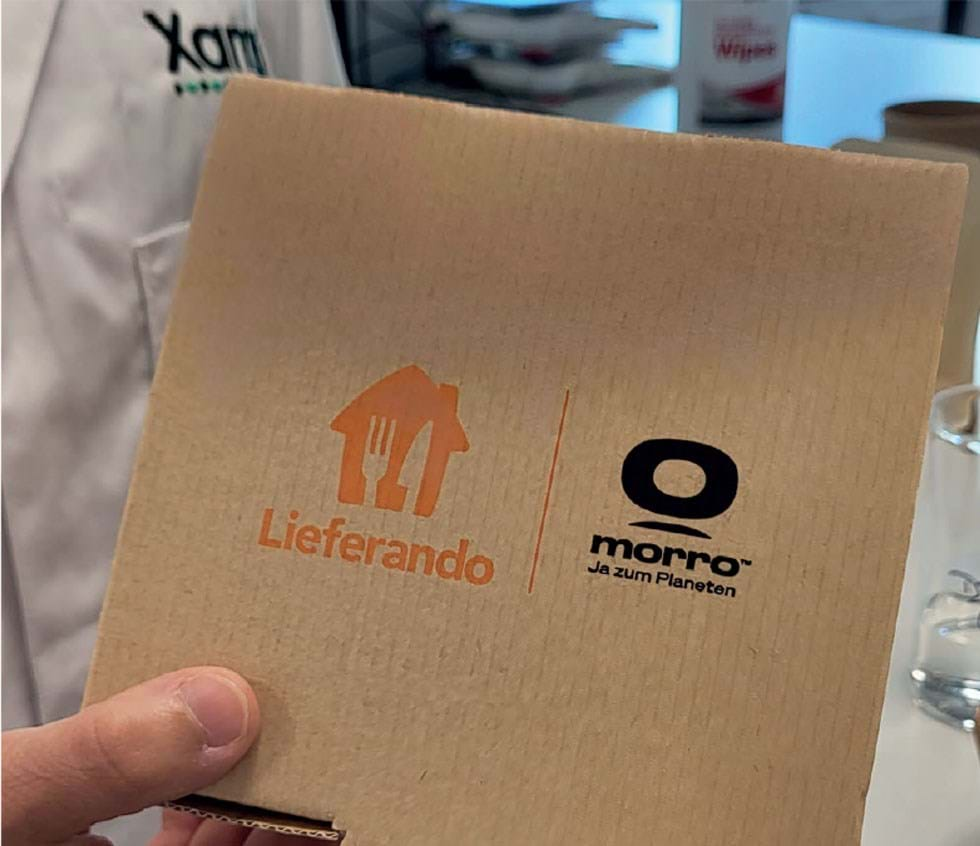Spinning a New Future for Packaging
Aniqah Majid explores how Cambridge spinout Xampla is transforming natural polymers into fully biodegradable packaging – and challenging the plastics industry to rethink its materials
YOU MAY have noticed a glossy sheen on the inside of your disposable coffee cup or takeaway box. This coating helps protect against water, heat and grease – preventing your hands being burned and your meal ending up on the floor. It’s typically made from synthetic polymers that can’t be recycled or disposed of in the same way as paper or rigid plastics.
“It’s absurd when you think about it, but we make materials that last for literally hundreds of years for somebody to use for ten minutes,” says Lynette Holland, the principal scientist at Xampla, a materials innovation company developing biodegradable, plant-based alternatives.

The UK generates around 11.7m t/y of packaging waste, including 2.5m t/y of plastic. While around 63% is recycled, the rest ends up in landfill or incineration – often because multi-material packaging confuses consumers and complicates sorting.
“Plastic materials don’t need to last several hundred years,” says Holland. “They need to last the length of how long somebody’s going to use that product for. And that’s the premise behind what we’re trying to do – replace those materials.”
From spider silk to plant polymers
Xampla’s story began at the University of Cambridge, in research exploring the extraordinary strength of spider silk.
“The way silk works is very similar to how polymers work, besides the fact that it is an animal protein,” explains Holland. “The silk that spiders spin is an incredibly strong material considering where it came from. But of course, you have the realisation that you cannot get far with spider silk, as you would need millions of little spiders.”
Instead, the team applied those structural principles to plant polymers, which can mimic the properties of conventional plastics. Plants naturally organise their polymer chains for strength and water resistance. The “heart” of Xampla’s process is to disassemble those long polymer chains and refold them to form useful products like coatings and microcapsules.
The UK generates around 11.7m t/y of packaging waste, including 2.5m t/y of plastic. While around 63% is recycled, the rest ends up in landfill or incineration
Recent Editions
Catch up on the latest news, views and jobs from The Chemical Engineer. Below are the four latest issues. View a wider selection of the archive from within the Magazine section of this site.




